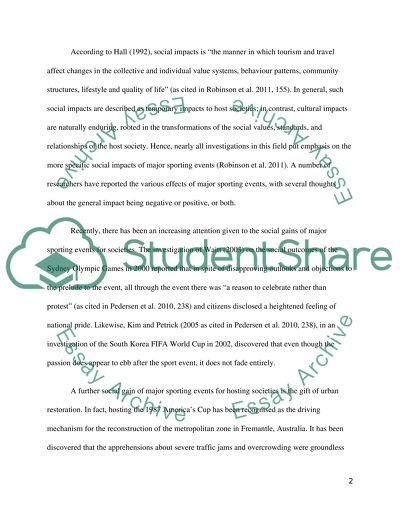Cite this document
(“Impact of Major Sporting Events on Host Communities Essay”, n.d.)
Impact of Major Sporting Events on Host Communities Essay. Retrieved from https://studentshare.org/tourism/1441148-critically-evaluate-whether-major-sporting-events
Impact of Major Sporting Events on Host Communities Essay. Retrieved from https://studentshare.org/tourism/1441148-critically-evaluate-whether-major-sporting-events
(Impact of Major Sporting Events on Host Communities Essay)
Impact of Major Sporting Events on Host Communities Essay. https://studentshare.org/tourism/1441148-critically-evaluate-whether-major-sporting-events.
Impact of Major Sporting Events on Host Communities Essay. https://studentshare.org/tourism/1441148-critically-evaluate-whether-major-sporting-events.
“Impact of Major Sporting Events on Host Communities Essay”, n.d. https://studentshare.org/tourism/1441148-critically-evaluate-whether-major-sporting-events.


